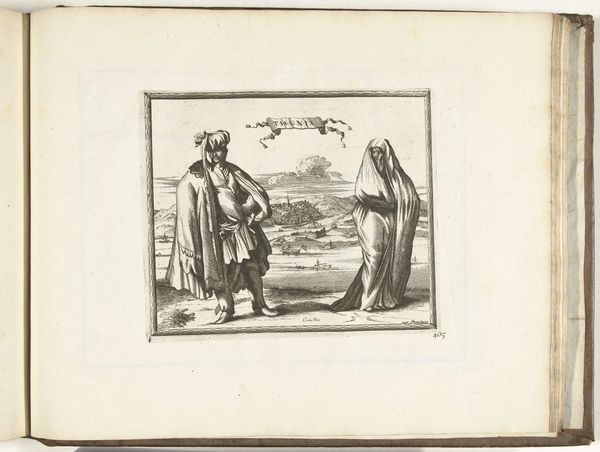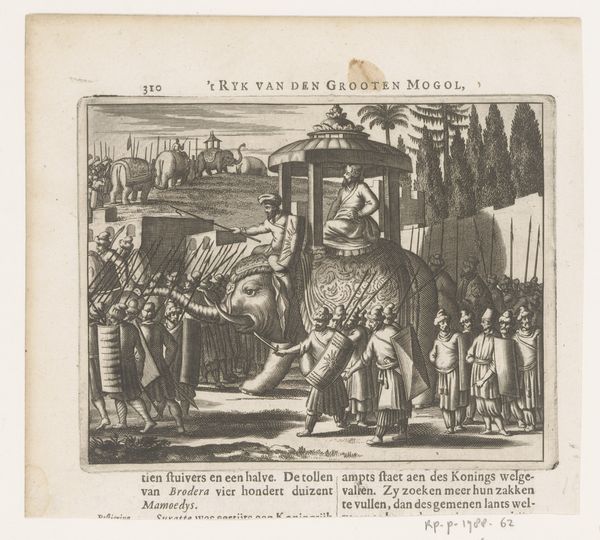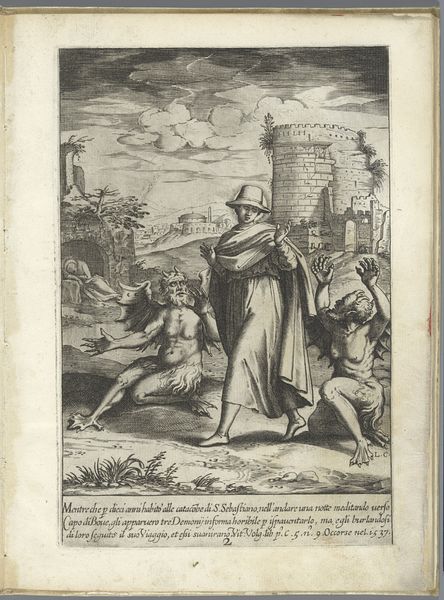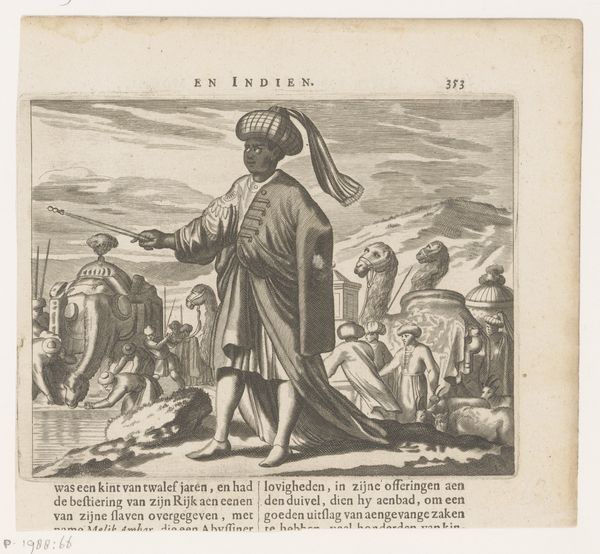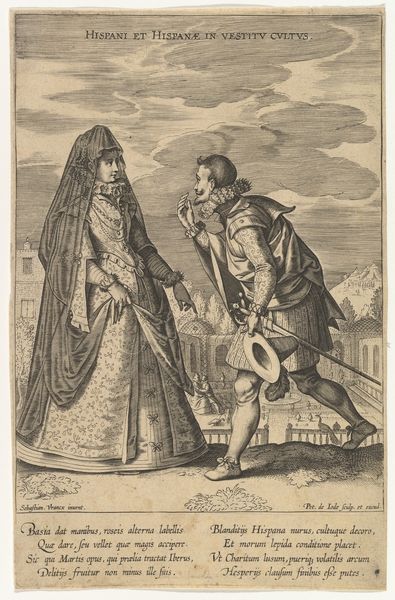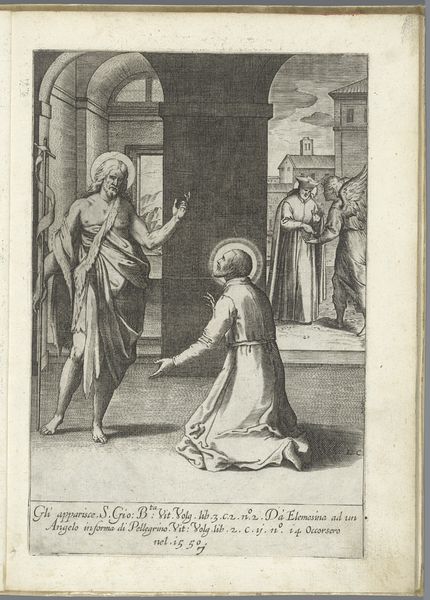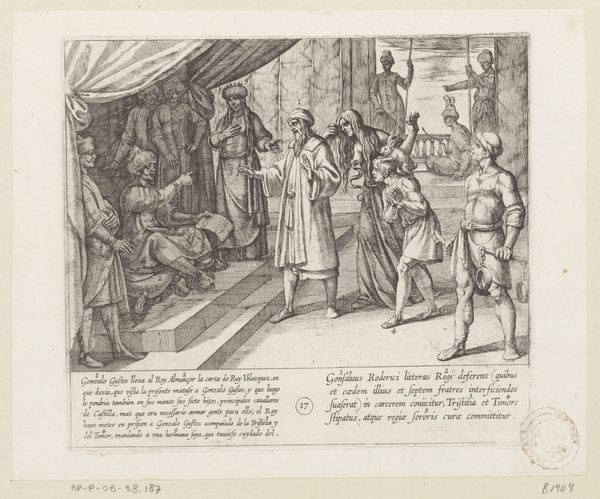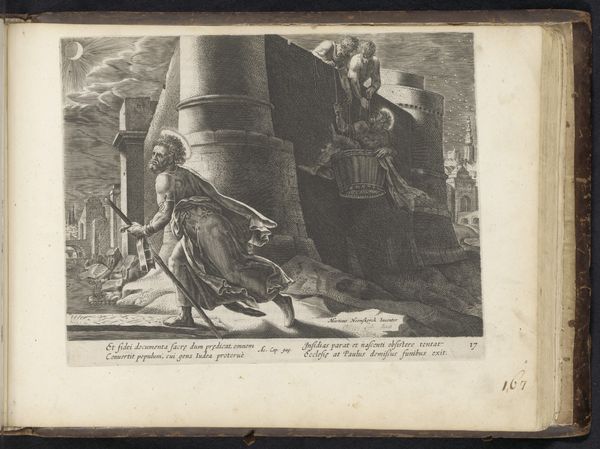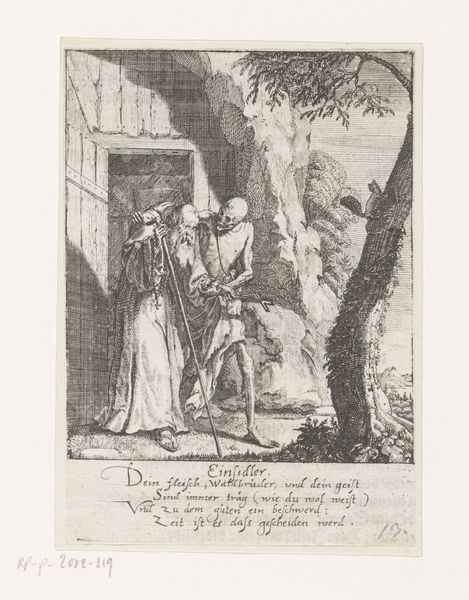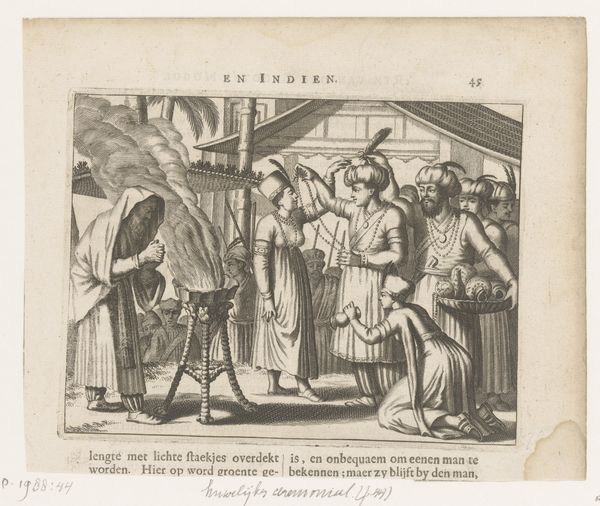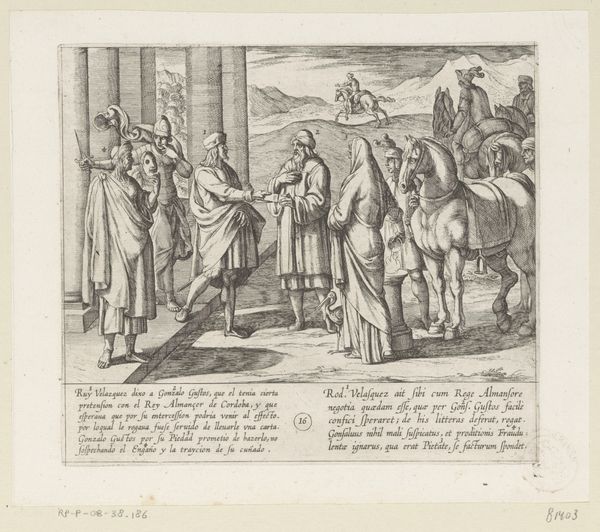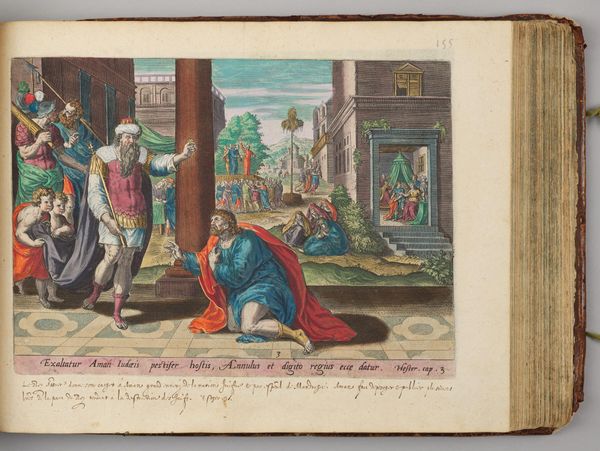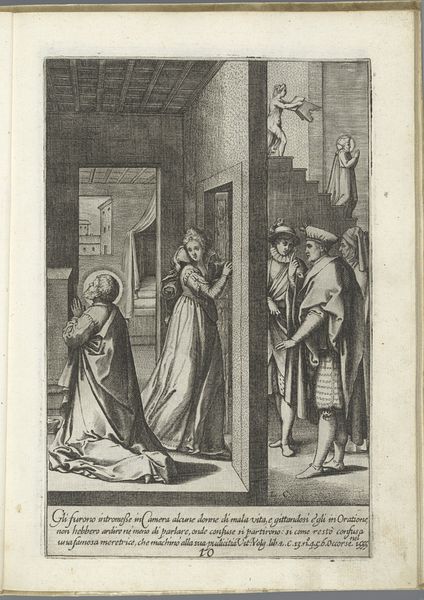
print, engraving
#
narrative-art
#
baroque
# print
#
old engraving style
#
figuration
#
genre-painting
#
engraving
Dimensions: height 126 mm, width 170 mm
Copyright: Rijks Museum: Open Domain
Editor: So, this print is titled "Kostuums in de Perzische provincie Kilan," and it dates back to 1672. It's an engraving. What I immediately notice is how theatrical the figures appear, almost like actors on a stage. How do you interpret this work, especially in its historical context? Curator: Well, think about what "theatre" means, especially at this time. What symbolic meanings would dress communicate? This image offers a particular representation of Persian identity for a European audience. Consider the emphasis on details like the turbans, hairstyles and fabrics; they are laden with symbolic meaning related to status and cultural identity. What do these details tell us about cultural exchange and the perception of the "Other" in the 17th century? Editor: That’s interesting. I guess I hadn't considered how much clothing acts as a marker of identity. So the artist is not just depicting costumes, but communicating something about Persian culture? Curator: Precisely. These are constructed images carrying coded meaning that the intended audience, readers of a Dutch travelogue, were intended to interpret. Look at the young girl, juxtaposed with the older man; consider how the artist portrays them and how it resonates with the colonial gaze of the time, especially since this coincides with increased European presence in the region. The girl, perhaps representing innocence or availability, contrasts with the imposing, perhaps threatening, older male figure. This is highly symbolic. Editor: So it’s about how Europeans saw Persians. I learned something new today. Thank you! Curator: And I'm reminded of how potent images can be in shaping our perceptions of the world. A vital insight.
Comments
No comments
Be the first to comment and join the conversation on the ultimate creative platform.

